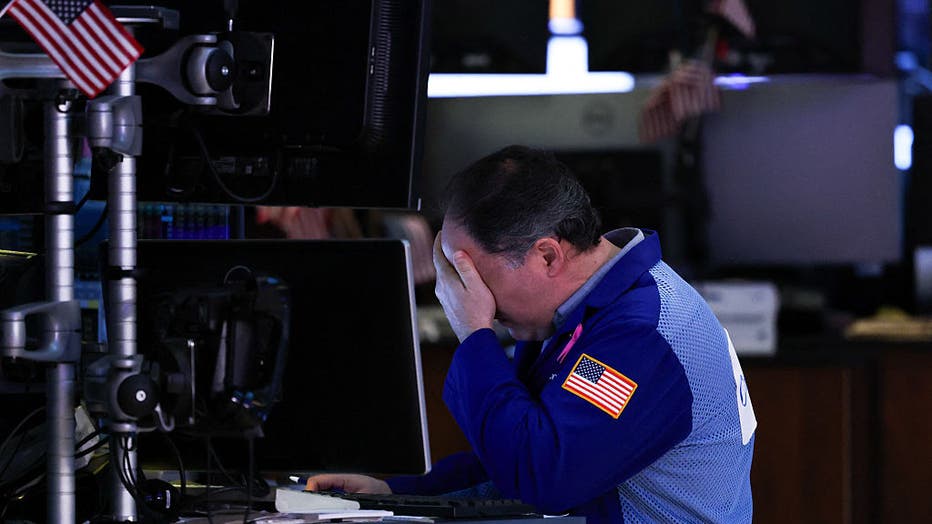United Airlines calls economy ‘impossible to predict’ as Trump tariffs cloud business outlook
Consumers spending rises in March ahead of tariffs
U.S. shoppers stepped up their shopping last month, spending more on big ticket items, like cars and electronics, before President Donald Trump’s new tariffs take effect. LiveNOW's Andy Mac spoke about how tariffs impact consumer spending with Barron's reporter Sabrina Escobar.
LOS ANGELES - U.S. stocks tumbled Wednesday as mounting trade restrictions and uncertainty around President Donald Trump’s tariff policies shook confidence in the global economy.
Among the most vocal was United Airlines, which said the current economy is "impossible to predict" and issued two separate forecasts depending on whether a recession takes hold.
Companies warn of economic fog ahead
The backstory:
Major corporations are now building contingency plans in the face of sweeping U.S. tariffs and China’s retaliatory moves. United Airlines said it made the rare decision to provide dual financial outlooks — one assuming a recession, and another assuming continued growth — because of unprecedented uncertainty.
"The fog of war is real," said analysts reacting to the airline’s warning, which comes despite stronger-than-expected earnings last quarter.
The warning reflects broader unease across sectors. Nvidia shares fell nearly 7% after announcing new U.S. export restrictions on its AI chips could reduce revenue by $5.5 billion.
AMD reported a similar $800 million hit. Semiconductor manufacturing giant ASML said recent tariff moves were "increasing uncertainty in the macro environment," adding that the global situation "will remain dynamic for a while."
Markets tumble on Fed warning
Big picture view:
Federal Reserve Chair Jerome Powell said Wednesday that Trump’s tariffs appear "bigger than we expected" and could both slow the economy and push inflation higher. That dual threat complicates future interest rate decisions, and Powell signaled the Fed is in no rush to act until the economic fallout becomes clearer.
"All of this is highly uncertain," Powell said.
The S&P 500 dropped 2.2%, the Dow Jones Industrial Average lost 699 points, and the Nasdaq sank 3.1%. The sell-off was broad, affecting transportation, tech, and retail stocks. Bond yields fell as investors sought safety, with the 10-year Treasury yield dropping to 4.28%.
Retailers and households brace for impact
What's next:
The World Trade Organization estimates that global trade could shrink up to 1.5% this year if tariff conditions worsen.

A trader works on the floor of the New York Stock Exchange (NYSE) at the opening bell in New York City, on April 16, 2025. (Photo by CHARLY TRIBALLEAU/AFP via Getty Images)
U.S. shoppers, meanwhile, appear to be racing to buy items like electronics and cars before prices go up — a short-term spike that could give way to a broader pullback in spending.
J.B. Hunt, a major freight company, also saw its stock plunge nearly 8% Wednesday, despite a strong earnings report, amid investor fears of slowing goods movement.
Economists warn that continued consumer pessimism could itself trigger a recession, even before the full impact of tariffs plays out.
The Source: This article is based on reporting from the Associated Press, including firsthand analysis by AP business writer Stan Choe, with financial data from the Federal Reserve, World Trade Organization, and corporate earnings reports from United Airlines, Nvidia, AMD, and ASML.

